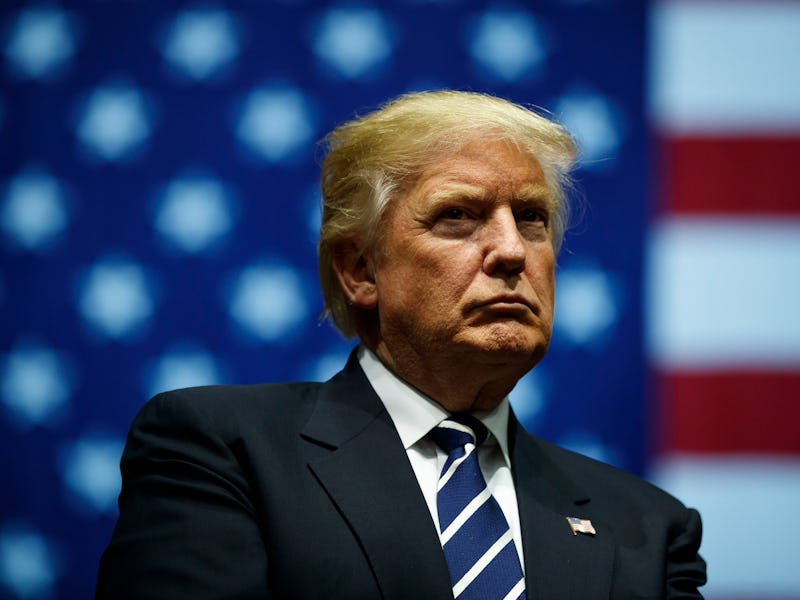Is the President Allowed to Record Conversations With People?
Trump's thinly-veiled threat to Comey resides in murky, ethical waters.

In a flurry of agitated tweets early Friday morning, President Donald Trump appeared to threaten recently fired FBI director James Comey with what he insinuated were compromising tapes of conversations between himself and Comey.
“James Comey better hope that there are no ‘tapes’ of our conversations before he starts leaking to the press!” Trump tweeted at 5:26 a.m.
While there is no confirmation as to the content — or even existence — of those recordings, Trump’s apparent threat was a cause of concern for many. It raised a number of questions, including most pertinently: Is the president allowed to unilaterally record conversations with people?
Unfortunately, the answer isn’t really clear. It likely depends on the context and location of the conversation.
There is a long and well-documented practice undertaken by many presidents of recording things, like important Oval Office conversations, phone calls with foreign leaders, and other high-level meetings. Those recordings almost never see the light of day, but it is considered useful to have them for informational — or sometimes investigative — purposes later on.
The New York Times, in 1997, published a short history (that’s by now a bit dated) of recorded White House conversations. They began with FDR, the article says, stemming from “an innocent desire to record press conferences.” It then grew from there to encompass other activities and meetings.
The most infamous examples of recordings in the White House are the Nixon recordings. They’re also the most abnormal. As the Times article notes, President Richard Nixon had voice-activated microphones installed all over the place in the Oval Office, picking up everything that was said. His subsequent refusal to turn the tapes over to Watergate investigators marked the beginning of his downfall.
Nixon meets with, and possibly records, Elvis Presley in the Oval Office.
After Nixon was gone, those microphones were quite literally ripped out of the walls. Administrations since then, including that of President Barack Obama, returned the practice of recording conversations to its circumstantial basis. It’s voluntary and discretionary. The president has the authority to implement recordings or not, and, for better or worse, no one can supersede his decision.
Thanks to Nixon, it’s widely accepted that to install secret, voice-sensitive (rather than manually activated) microphones in a paranoid rage fit would be unethical. But anything short of that is arguably fair game. And Trump has proven he’s willing to muck about in those waters. Back in February, the White House did not release the transcript of a phone call between Trump and Putin, the kind of interaction that would almost certainly be preserved by any previous administration.
So what about Comey? It’s possible the conversations Trump is referring to could have been, say, a phone call between Trump and the FBI director. It would fall within the normal course of business to record such a thing. Then again, threatening to release the recording of such a call as a form of political retaliation is another thing entirely.
But this hypothetical circumstance then raises the question of what exactly Comey said that would be so damaging. It’s hard to imagine that Comey, who even over a private dinner with Trump watched his words and refused to get too chummy with the president, would have said anything too damning in that context.
That leaves two possibilities. Either Trump’s tweet is just him blowing hot air, or the president is in possession of a recording of an informal conversation with Comey, one where the former FBI director’s guard was way down. If that conversation was in the Oval Office or other comparable space, the president could technically be within his historical rights to keep a tape of it. But while it might not be explicitly illegal, it would be downright Nixonian, a label from which Trump is, lately, finding it harder and harder to escape.